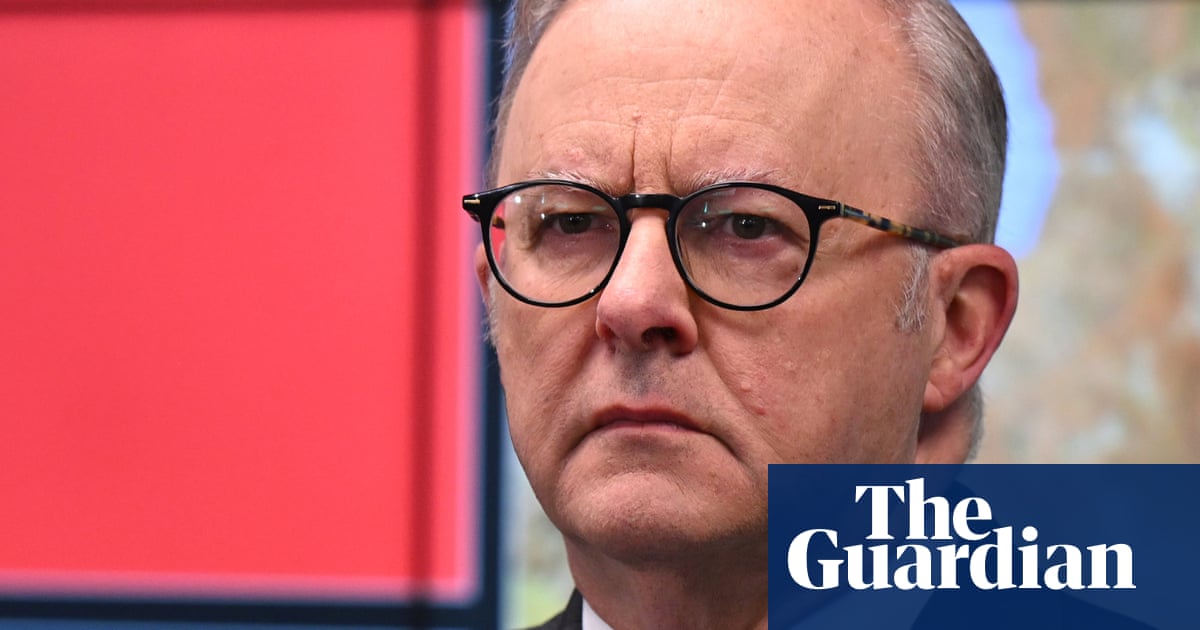Australian Prime Minister Albanese Condemns Israel's Aid Blockade in Gaza










2025-05-26T01:56:00Z

In a strong denunciation of Israel's actions, Australian Prime Minister Anthony Albanese has referred to the ongoing blockade of humanitarian aid into Gaza as “an outrage.” Albanese's comments highlight his concern regarding the Israeli government’s justifications for halting essential food and medical supplies, which he described as “completely untenable.” This situation arises as the region grapples with an escalating humanitarian crisis that has left many residents on the brink of starvation.
During a recent press conference, Albanese expressed Australia’s deep concerns following a conversation he had with Israel’s President, Isaac Herzog, last week. The Prime Minister noted that the United Nations has warned that the entire population of Gaza is facing famine, and some experts have referred to Israel’s 80-day blockade as potentially “the cruelest phase of this cruel conflict.”
“Israel’s actions are completely unacceptable,” Albanese stated emphatically. He continued, “It is outrageous that there be a blockade of food and supplies to people who are in need in Gaza … People are starving. The idea that a democratic state withholds supply is an outrage.” These remarks underscore Australia’s commitment to addressing humanitarian needs in conflict zones.
Last week, Australia joined a coalition of 22 other nations, including the United Kingdom, Canada, and New Zealand, in condemning Israel's decision to permit only limited aid into Gaza. This coalition articulates a collective stance against the humanitarian crisis exacerbated by the blockade. Foreign Minister Penny Wong also criticized “abhorrent and outrageous” comments made by members of the Netanyahu government, emphasizing that the Israeli government must not allow the suffering in Gaza to persist.
Albanese’s statements on Monday marked some of his most pointed criticisms yet regarding the situation in Gaza. He reiterated Australia’s signing of the joint statement condemning the blockade and stressed that he had clearly communicated these concerns to President Herzog during their meeting in Rome last week. “I made it very clear that Australia finds these actions completely unacceptable and we find Israel’s excuses and explanations completely untenable and without credibility,” he said, reinforcing his government’s position.
Additionally, Albanese reiterated his belief that Hamas should have no future role in governing Gaza or the West Bank, while simultaneously calling for the release of Israeli hostages captured during the terrorist attack on October 7. However, he emphasized that Israel must alter its current course. “Democratic states have a responsibility to behave in a way that is consistent with international law and humanitarian concerns,” he asserted, compelling Israel to consider the ethical implications of its actions.
The Prime Minister’s comments come on the heels of statements made by former Labor Minister Ed Husic, who argued that Australia “can and should be doing more” in response to the crisis. In an article for Guardian Australia, Husic urged the government to summon the Israeli ambassador to demand an “immediate freer, rapid flow of humanitarian aid” and to significantly increase contributions to international aid efforts. He emphasized Australia's historical commitment to advocating for vulnerable populations worldwide, stating, “Two million starving people in Gaza need all the help we can muster alongside others.”
Furthermore, Greens Senator David Shoebridge amplified this call during a press conference on Monday, reiterating his demand that the Australian government terminate its multimillion-dollar contracts with two Israeli arms companies and their subsidiaries. This highlights the growing calls within Australia for a reassessment of its foreign policy in light of the humanitarian situation in Gaza.
As Israel continues its military operations in Gaza, aid agencies have warned that the Palestinian population is sinking deeper into malnutrition and famine. For nearly three months, the blockade has prevented food, fuel, medicine, and other essential supplies from entering Gaza, exacerbating the humanitarian crisis impacting 2.3 million Palestinians.
Under mounting international pressure, Israeli Prime Minister Benjamin Netanyahu, who has publicly stated his commitment to ensuring that the entire Gaza Strip is under Israeli security control by the conclusion of the conflict, recently indicated a willingness to ease the 11-week siege to avert a “starvation crisis.” However, many aid organizations and governments assert that such a crisis has already reached critical levels. While Israel accuses Hamas of diverting humanitarian aid for its own purposes, the UN and various aid groups contend that there has been no significant diversion of supplies.
On a recent Thursday, the Israeli military reported that 107 aid trucks belonging to the UN and other organizations, carrying vital supplies such as flour, food, medical equipment, and pharmaceuticals, entered Gaza. However, UN Secretary-General António Guterres expressed concern that Israel's actions have only authorized what he characterized as “a teaspoon of aid when a flood of assistance is required” to mitigate the ongoing crisis. The situation remains dire as the international community watches closely and calls for urgent action to address the severe humanitarian needs in Gaza.
 Angela Thompson
Angela Thompson
Source of the news: The Guardian